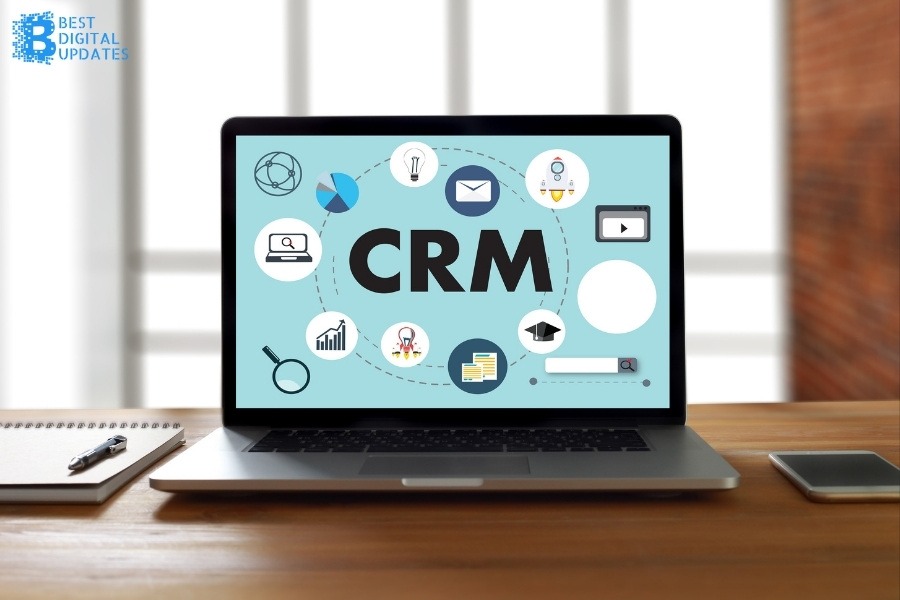When it comes to running a business, developing good customer relations is one of the most crucial things an entire team can do. Remember that in business, your customers are the people that keep your livelihood running and growing.
The bigger your business, the more customers you’ll have to take care of. In the past, customer care was achieved through manual means. Today, technology has paved the way for software and other digital tools to make Customer Relations Management (CRM) easier and more efficient.
CRM refers to the tool used to manage its customers and contacts, both externally and internally. These tools could include email subscriptions, followers, and loyal customers, among many others. Because of its profound purpose for businesses today, it’s not surprising there are many CRM software you can choose from.
Being able to narrow down your options could mean you end up with the best open source CRM tool for your business.
To start, here are five of the most necessary factors to consider when choosing a CRM tool for business:
Price
Table of Contents
Like any other equipment, software, or device you’re going to invest in for your business, one of the most noteworthy elements to consider is price. Above anything else, your CRM tool should be priced well enough that it fits in your budget.
Whether you’re looking for a CRM tool for your retail or commercial service business, it’s important to know how to get the most out from the budget you can allocate for this tool. So, what are the things to consider when choosing the right CRM tool for you based on your budget? Of course, you need to determine the best CRM features that you need within your acceptable price range.
Many of the CRM tools today have a monthly payment. The more users in the company connected to the CRM, the higher the price becomes. This is why you have to be particular about choosing an option that fits your budget. Otherwise, your CRM tool, as good and effective as it may be, could become a deficit if you’re paying hefty amounts for software.
The great news is price doesn’t always determine quality. There are many CRM software or tools that can function as effectively as others without the heavy sticker price. Because there’s a chance of keeping your dollars in your wallet, never rush through the process of selecting a CRM. Make sure you’ve researched all your options as thoroughly as possible.
Scalability
Scalability refers to the CRM software’s ability to grow alongside your business. Adding more lines or users shouldn’t be a challenge as your team expands and more users will need to have access to the software.
Scalability is a relevant factor to consider as it cuts down the heavy work that comes into moving the entire sales team into a new system. So, to ensure the best outcomes out of your current CRM software, don’t only think about your current workforce. Look towards the near future, so early on you can prepare your current CRM software for scalability.
With that in mind, here are some questions you can ask as you determine a CRM software’s scalability:
- Does the CRM software have robust security features that won’t get affected as the business grows?
- From existing to new employees, is the CRM software easy to operate? Can the customer service team adapt to learning new software to onboard new team members?
- Are there any fees each time the business scales or grows?
Business Goals
No matter how outstanding the CRM software features are, if it doesn’t match your business goals, it can’t be maximized for optimum use. Hence, among the other factors that’ll shape your decision of choosing a CRM software, it should also include your business goals.
If your business has a goal to step up its sales efforts, it would be best to use sales tools such as CRM and sales management software. Using other unrelated tools could prove to be costly.
Every CRM tool has its respective strengths and weaknesses. So, there’s no universal approach to finding the right one for your needs. The right fit usually depends on the purpose you’ve set for your software and how the software itself can meet those business goals.
Some of the goals that could shape your choice of CRM tool could include:
- Obtaining analytical insight about your customers
- Reducing the cost per sale
- Better collaboration and management of employees across departments
- Improving your client retention rates
In this regard, as you create the goals above, don’t focus on seeking tips and ideas from your marketing or customer service team. Be sure to make your goals an inter-departmental effort so your CRM tool’s ability can be maximized for use across all departments of your business. Every section of your company should have the same ideals and goals to success.
Ease Of Usage
Ease of usage comes fourth on this list. Simplicity to ensure your entire team, even those who may not be the best with gadgets and other technological advancements, can use your CRM tool is another factor to consider.
The easier a CRM tool is to use and understand, the better. Simplicity could also ensure smooth flow of operations and better efficiency. There’s no time wasted tinkering with the software trying to decipher how to use it. Most importantly, when a CRM tool is easy to use, the chances of mistakes reduce significantly.
Recognizing this need, many modern CRM tools emphasize user-friendly design. Some, like Zinnect software, typically focus on contact-based task management, making it easier for professionals to stay organized without dealing with complex interfaces or steep learning curves.
Customization
A CRM tool works best for a business when it can easily be tailored or customized to cater to a business’ specific needs. The ability to modify a CRM tool that could be used by other businesses gives you the capability to use the software differently in terms of capacity and use. The specific needs of a business can be considered so the CRM software can be fine-tuned to meet the business’ needs.
Choosing A CRM Solution Provider
You’ve learned the important considerations when choosing a CRM for your business. Now, it’s time to know how to choose a CRM solution provider by considering the following factors:
- Check Niche or Specialization: Not all CRM companies are the same. Some companies cater to retail services and healthcare services while others to legal services, such as law firm CRM software.
- Check Technical Support and Customer Service: It’s important to deal with a CRM company that can offer full technical support if you experience technical difficulties. Ask the representative from the company if they have a dedicated technical support and customer service teams.
- Check The Company’s Reputation: A reputable CRM provider can provide you a copy of their credentials. Visit the company’s website and check their organization profile. You can read reviews and testimonials from previous and current clients to know their views and experiences about the CRM solution and the company.
Conclusion
When customers are the heart of any business, surely, you’ll want the chance to take care of your loyal patrons. As you build a stronger clientele, the challenge of reaching out to new and potential customers grows.
Having the chance to reach clients old and new is another reason to consider investing in a long-term CRM software. As you start your search, it’s normal to feel overwhelmed by the wide myriad of options available. To make sure you don’t lose track of the best, remember the suggestions from this post.
A good CRM software should help you build and establish your company without breaking your bank. If you can honor the tips from above, you’re on the right track to bring in the best results for your business.





















